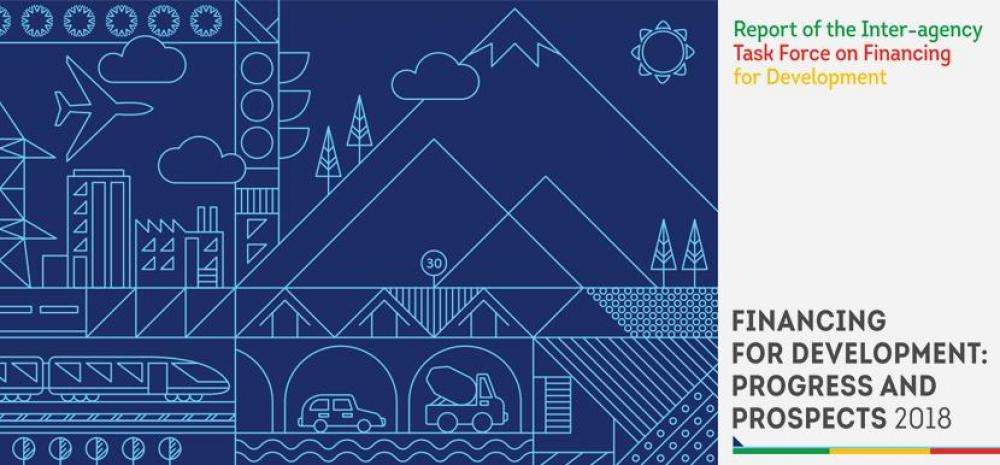
Note by the Secretary-General:
Note by the Secretary-General on “Financing for Development: Progress and prospects” (E/FFDF/2018/2)
English | Français | Español | العربية | 中文 | Русский
Press release (13 April 2018) and fact sheet:
Short-termism impedes progress of hundreds of millions of people (doc) (pdf)
Data update following release of 2017 ODA data (20 April 2018):
ODA falls slightly in real terms in 2017, with more promising outlook for LDCs
The 2018 report of the Inter-agency Task Force on Financing for Development finds that most types of development financing flows increased in 2017, and that there has been progress across all the action areas of the Addis Ababa Action Agenda. This progress was underpinned by an upturn in the world economy, but at the same time the report warns that risks could derail development progress and structural impediments continue to undermine sustainable development prospects.
The 2018 report provides policy options which, if implemented, would put the world on a sustained and sustainable growth and development path. It also examines the financing challenges to the SDGs under in-depth review in 2018 to help assess progress in the means of implementation for goals on water and sanitation, affordable and clean energy, sustainable cities and communities, sustainable production and consumption, and terrestrial ecosystems.
The 2018 report is the second substantive assessment of progress in implementing the Financing for Development outcomes and the means of implementation of the Sustainable Development Goals since the adoption of the 2030 Agenda for Sustainable Development and the Addis Ababa Action Agenda. The assessment draws on the expertise, analysis and data from almost 60 agencies and international institutions that make up the Task Force, which is led by UN DESA and includes the World Bank Group, the International Monetary Fund and the World Trade Organisation, as well as UN agencies such as UNCTAD and UNDP.
The 2018 Financing for Sustainable Development Report highlights significant medium-term risks as well as structural impediments that, if unaddressed, threaten to undermine sustainable development. To address risks and close implementation gaps, the report recommends policy priorities to guide public and private stakeholders as they scale up SDG financing. These include, among others, setting the right incentives to align private sector investment decisions with long-term sustainable development, enhancing institutional and regulatory frameworks for effective economic governance and strengthening international cooperation in order to support developing countries in delivering the 2030 Agenda.
Additional materials: